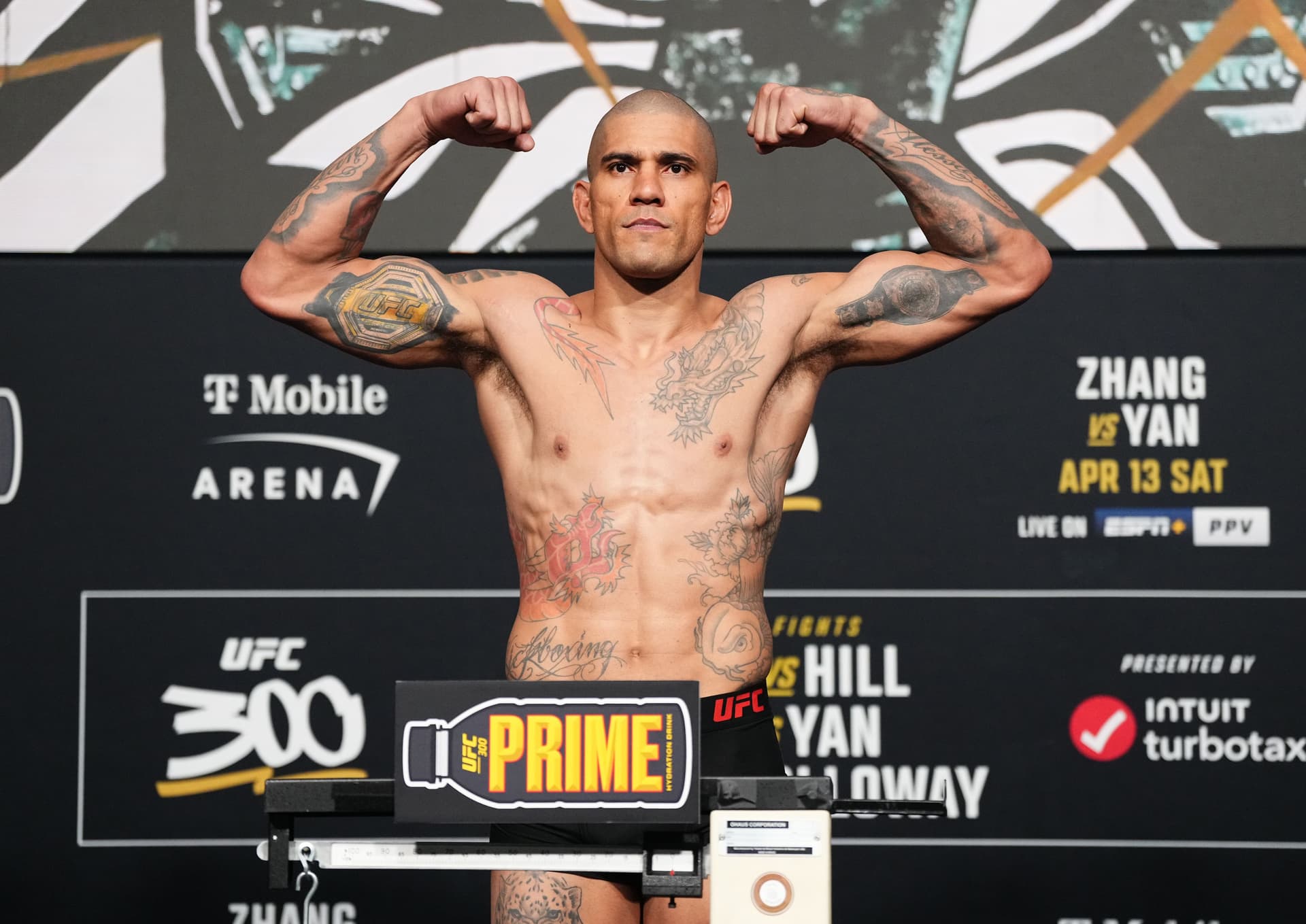MMA
The Importance of Weight Cuts in the UFC: Risks and Rewards
Weight cutting in the UFC is a critical process that can provide fighters with a size and strength advantage by competing in a lower weight class. However, the process comes with risks, including dehydration, injury, and long-term health issues, which can negatively impact performance. Learn how successful weight cuts can give fighters the edge and the potential dangers that come with it.

Alex Pereira//Getty Images
Cutting weight in the Ultimate Fighting Championship plays a massive part in the fight itself, maybe more than fans realise.
Fighters cut weight in combat sports in order to perform in a weight class lower than their natural body weight. This practice is done to gain a size and strength advantage over opponents and also so they can compete at their optimum weight.
Why Cutting Weight Is an Important Aspect of Fighting

Leon Edwards//Getty
The most obvious reason why fighters cut weight is to gain size and strength advantage over other people in that weight class. Often, MMA fighters cut as much as 30 to 40 pounds when they're getting ready to compete.
Fighters who cut weight successfully can potentially be bigger, stronger, and more powerful than their opponents. This size advantage can be significant, especially if the other fighter has a skill advantage.
Successfully cutting weight can provide a psychological advantage heading into a bout. Fighters who manage to make weight often feel a sense of accomplishment and mental toughness, which can boost confidence. If somebody is facing an opponent that struggles to make weight then this can also improve their mental strength.

Jeremy Larsen//Getty
As touched on previously, cutting weight can allow fighters to have a natural power advantage over their opponents and sometimes this allows fighters to have a huge reach advantage. This is significant if you utilise this to your benefit, and this is mostly helpful to strikers.
It also allows fighters to gain far more leverage when it comes to grappling situations. A heavier and much stronger fighter may have an easier time controlling their opponent, securing takedowns, and maintaining dominant positions. Having much longer limbs can work in a fighter's favour if they attempt submissions as they can find angles that shorter-limbed fighters may not be able to.
When done properly, weight-cutting can lead to a leaner, more athletic physique, which can enhance speed, agility, and stamina. Additionally, having a healthy weight cut can improve your ability to take a punch.
Fighters that always have a healthy weight cut will be favoured by the UFC because they know they can rely on them to potentially fill in for fights if somebody pulls out with injury. They're also more likely to be stars of the sport because MMA fans will respect them for never missing weight, and, sometimes they can save a fight card if they are capable of stepping in on short notice.
Risks of Cutting Weight and It’s Impact on Performance

Conor McGregor//Getty
The most common method of cutting weight involves dehydration - starving the body of water. Severe dehydration can lead to reduced cognitive function and decreased stamina. Even after rehydration, which is done once you weigh in, a fighter may not fully recover, ultimately affecting their performance.
Drastic weight cuts can weaken muscles, joints, and bones, making fighters more susceptible to soft tissue injuries and impact injuries during both training and the actual fight itself.
Also, the stress of weight cutting can weaken the immune system, increasing the likelihood of getting sick or not being at peak health during the fight. In extreme cases, fighters have had to be pulled from an event because of kidney and/or lung damage.
Failing to make weight can result in penalties, such as losing a portion of the fight purse, damaging a fighter's reputation, or even causing the fight to be cancelled. Additionally, missing weight might force a fighter to compete in a less favourable weight class in the future. The UFC and the fans love fighters who are dependable, and a healthy weight cut is a big factor in fighters being dependable.
Having a bad weight cut, even if a fighter successfully makes the weight, can negatively impact a fighter's ability to withstand damage. Those who struggle to make weight usually absorb head shots worse than those that have a good weight cut. Often, fighters that have a poor weight-cutting process are susceptible to being hurt by body shots.
If fighters struggle to cut weight then they will find it more difficult to recover if hurt, winded or even tired in between rounds.
Ultimately, cutting weight is just as important as the fight itself because even the most skilled of fighters will be considerably impeded, physically and/or mentally, if they do not have a successful dehydration and rehydration process.

Jake Staniland is a sports writer who excels in covering a wide range of sports: football, combat sports and the NFL - All three subjects are his lifelong passions.
Jake is a boyhood Sheffield United fan, which is often a curse that he thanks his family for. His favourite Blades player ever is Billy Sharp